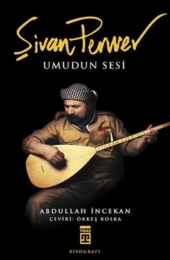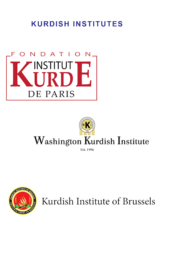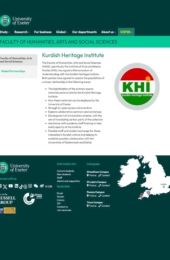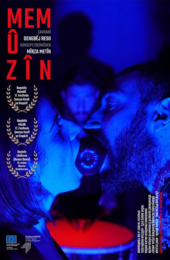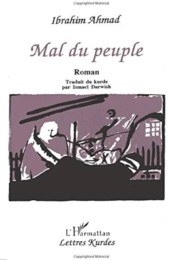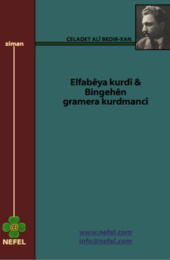Hemû Berhem Şivan Perwer
Şivan Perwer's Work: "Hemû Berhem" refers to the complete works of Şivan Perwer, a prominent Kurdish musician. His album "Efsaneya Zindî" is a notable part of his extensive repertoire.
Biographical Insight: Gülistan Perwer, likely a family member, shared personal reflections on Şivan's 50-year artistic career, discussing significant changes in his life.
Album "Lê dîlberê": One of Şivan's albums, "Lê dîlberê" from 1986, features the Kurdish musical heritage with tracks like "Dilê min bû behra belek".
Political Impact: Şivan Perwer's return to Turkey marked a significant moment, drawing attention and scrutiny, especially in Kurdish-majority areas.
Musical Style: Şivan Perwer's music is described as a 'neo-classic' fusion, contributing to the cultural richness of Kurdish music.
Global Recognition: Şivan Perwer is celebrated globally as a Kurdish icon, with a diverse fan base across different cultures.
Note: The provided information offers a glimpse into Şivan Perwer's musical legacy, personal reflections, and broader impact on the Kurdish cultural landscape.
FIBA Europe U18 Championship MVP (2009)
The MVP of the FIBA European Under-18 Championship 2009 tournament was Enes Kanter. Enes Kanter is a professional basketball player of Kurdish origin who has a successful career in both European and NBA leagues. He played for various NBA teams, including the Utah Jazz, Oklahoma City Thunder, New York Knicks and others.
Kurdish Institutes
Enstituya Kurdî ya Brukselê (1978), Enstîtuya Kurdî ya Parîsê (1983), Enstîtuya Kurdî ya Bonnê
(1984), Enstîtuya Kurdî ya Stenbolê (1992), Înstîtûta Kurdî li Berlîn (1994), Înstîtuya Kurdî li
Stockholmê (1996), Washington Kurdish Institute (1996), Enstîtuya Çanda Kurdî ya Tehran (2001),
Enstîtuya Kurdî ya Amedê (2004), Enstîtuya Kurdî ya Zurîhê, Amed Kurdish Studies (2019), Enstîtuya
Kurdî ya Vîyanayê, New York Kurdish Cultural Center, the Kurdish Center for Studies (KCS), IBV,
Weqfa Mezopotamya, The Kurdish Peace Institute, Zahra Institute, The European Center for Kurdish
Studies (1999), The Washington Kurdish Institute (1996), The International Institute for the Study of
Kurdish Societies (IISKS), The Kurdish Institute of Copenhagen etc.
There are various Kurdish institutes and organizations that focus on promoting Kurdish culture, language, education, and advocacy for the Kurdish people. Some of these include:
- Kurdistan Regional Government (KRG): The KRG is the autonomous government in Iraqi Kurdistan, and it plays a significant role in the cultural and educational development of the region.
- Kurdistan Institute for Strategic Studies and Research (KISSR): KISSR is an independent research institute based in Erbil, Iraqi Kurdistan. It focuses on strategic studies and research related to the Kurdish region.
- Kurdistan Institute of Education (KIE): KIE is an educational institute in Iraqi Kurdistan that works to improve the quality of education and provide training for teachers.
- Institute for Kurdish Studies (IKS): IKS is based in the United Kingdom and is dedicated to the study of Kurdish culture, history, and society. It promotes academic research and organizes conferences and events.
- Kurdish Institute in Paris: This institute focuses on promoting Kurdish culture, language, and history in France and beyond. It often organizes cultural events, seminars, and exhibitions.
- Kurdish Human Rights Project (KHRP): While not an institute in the traditional sense, KHRP is an organization that works to promote and protect the human rights of Kurds worldwide. They engage in legal advocacy, research, and awareness campaigns.
- Kurdish Language Academy (KLA): This organization is dedicated to the promotion and preservation of the Kurdish language. It provides resources for learning Kurdish and supports initiatives to strengthen the language.
- Kurdish Institute of Istanbul: This institute, based in Turkey, focuses on Kurdish studies, including language, history, and culture.
Kurdish heritage institute
The Faculty of Humanities, Arts and Social Sciences (HASS), specifically the Institute of Arab and Islamic Studies (IAIS), has signed a Memorandum of Understanding with the Kurdish Heritage Institute. Both parties have agreed to explore the possibilities of a closer relationship in the following areas:
- The digitalisation of the primary source materials archive held by the Kurdish Heritage Institute
- How these materials can be displayed by the University of Exeter
- through an open access online archive
- Explore collaborative seminars and workshops
- Development of a translation scheme, with the aim of translating certain parts of the collection
- Assistance with academic staff training to help build capacity at the Institute
- Possible staff and student exchange for those interested in Kurdish culture and helping to establish possible collaboration with the Universities of Sulaimniyeh and Dohuk
Mother and Patriot
Zouhair Hasib Ali
Born in Hasaka, Syria 1960 of Kurdish origins; Zouhair Hasib would break down barriers as a Kurd. Kurdish people were not allowed to achieve higher education, historically. However, unwavering and determined, he graduated with an art diploma and was at the top tier of his class from the University of Damascus. But this would be only the beginning.
He would later exhibit not only in his hometown of Hasaka but in Europe, Damascus, Dubai and throughout other parts of the Middle East. His works would be featured in governmental buildings, businesses and residences. And there would be many who would be fortunate to have the privilege of his tutelage deemed him “Professor.” He is currently a member of the Union of Plastic Artists in Syria.
Solo exhibitions
1980 Al-Hasakah, the Arab Cultural Center
1989 Germany, Dresden. Palace of Culture
1990 Damascus, Ishtar Gallery
1991 Aleppo, Al-Khanji Hall
2000 Damascus, Nasir Shura Gallery 2002 Damascus, Naseer Shura Gallery 2007 Damascus, Al-Sayed Gallery 2009 Kurdistan Iraq, Sulaymaniyah Sooruka Hall.
2010 Damascus, Mr. Hall
Collective exhibitions
Damascus National Museum Greetings to the martyrs
Sophia, International Youth Exhibition
Amman, Muscat Biennial for Youth
Beirut, with artist Fateh Al-Mudaris, Dar Al Nadwa
2003 Damascus, honoring the late artist Omar Haseeb
2004 Aleppo, Kalimat Gallery
2005 Kurdistan Iraq, Sulaymaniyah Gallery ROJ
2009 France, Paris
Mem û Zîn Mirza Metin
"Mem û Zîn" is a Kurdish love story directed by Mirza Metin, a prominent figure in contemporary Kurdish theatre. The play is known for its minimal aesthetic, resembling a ritual rather than a traditional play[2]. Mirza Metin, co-founder of Şermola Performance, has been actively involved in Kurdish theatre, exploring themes like self-being through projects such as "Dîwana Xwebûnê" (Karneval des Selbstseins)[5][8]. The play has received recognition, winning awards such as Best Music Design at the 17th Saqqez Kurdish Theatre Festival[3]. To stay updated, you can follow Mirza Metin on Instagram@mirzametin[9].
The Path(Yol)
"The Path (Yol)" is a 1982 Turkish film directed by Şerif Gören and Yılmaz Güney. The film, pronounced as [joɫ], explores the lives of five Kurdish prisoners granted a week's leave. The story delves into their struggles and the harsh realities of their homeland. Ömer, a young Kurd from Urfa, is a central character dealing with smuggling-related imprisonment and family hardships[1][4]. Yılmaz Güney, co-director and co-writer, was a prominent Turkish author and director. The film received international acclaim, addressing themes of repression, tyranny, and inhumanity[9]. Güney's involvement in the film is noteworthy, considering his escape from Turkish prison to oversee its production[8].
Gelawêj
Evil of the people
The evil of the people is the suffering, the hope of an entire
people: the Kurds.
Suffering equal to that of the young and beautiful Kalée,
alone, about to give birth. Hope equal to that of Jwamer,
who was sent to prison for ten years by fate because
he found himself, by chance, at the head of a demonstration.
Evil of the people is a torn Kurdistan, with a feeling
of survival of the things of the earth and the soul. He
denounces the attacks on human dignity of which different
regimes and their prisons remain forever guilty.
Despite this, the book remains a novel. Ibrahim Ahmad
incorporates elements that are non-fictional in nature into
stories that remain captivating for the imagination and
sensitivity; his heroes experience the illumination of
the “feeling of existence”.
Ibrahim Ahmad is not only a femon, but also an actor,
sometimes hidden, sometimes discovered, in the great dramas
in Kurdistan,
Ibrahim AHMAD. Born in 1913 in Soulémani, Iraqi
Kurdistan. Founder of the famous linear magazine Gelawej (1939-1949),
he participated in the development of Kurdish literature.
Novelist, poet but also short story writer, Ahmad is considered the
representative of the realistic movement in contemporary Kurdish
literature.
Ismael DARWISH. Born in 1961 in Kirkuk, Kurdistan.
Iraqi. Among the unpublished texts of contemporary Kurdish literature,
he translated a collection of poems and several Kurdish short
stories.
Work translated with the assistance of the Cenure National du Livre.
Elfabeya Kurdî
Elfabeya Kurdî Celadet Ali Bedirxan
Elfabeya Kurdi is a work by Celadet Ali Bedirxan, available in Turkish. It has 64 pages and is in paperback format.
Celadet Ali Bedirhan, a Kurdish intellectual, authored Elfabeya Kurdi. His Kurdish language contributions include grammar works like "Elfabeya Kurdi ü Bingehen-Gramera Kurmanci".
In summary, Elfabeya Kurdî by Celadet Ali Bedirxan is a Turkish language work, and Celadet Ali Bedirhan is known for his significant contributions to Kurdish linguistics. The book is available on various platforms in different formats.
